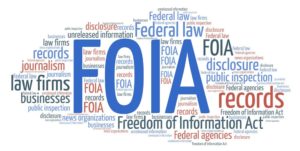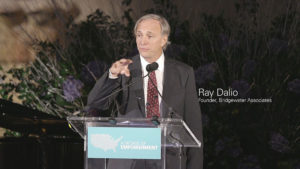
March 16, 2015;USA Today
It’s Sunshine Week! This is the week when government celebrates its increasing commitment to openness and transparency—without stopping its frequent, quiet restrictions of access to information that should be easily available to the press and the public at large. The Obama White House celebrated in a fashion that Anne Weismann of Citizens for Responsibility and Ethics in Washington (CREW) described as ironic. According to this USA Today article, the White House announced that it “is removing a federal regulation that subjects its Office of Administration to the Freedom of Information Act.” Good timing, White House guys! Kick off Sunshine Week by removing one federal office from FOIA compliance.
“It is completely out of step with the president’s supposed commitment to transparency,” Weisman said. “That is a critical office, especially if you want to know, for example, how the White House is dealing with email.”
In all fairness to the White House, it is hardly the only public entity to celebrate transparency and openness by finding ways of limiting public access to information. In the most contentious domestic news story of the past year, the police killing of unarmed teenager Michael Brown, the town fathers of Ferguson, Missouri did their best to flout the meaning of Sunshine Week. According to the Associated Press, in response to requests from the press and the public to open records in Ferguson, “The St. Louis suburb sought payments of thousands of dollars before even beginning to fill some of those requests.” The AP reported that the city even sought “down payments” of $2,000 from some press outlets before it would begin processing information requests. Missouri’s Sunshine Law allows municipalities to charge “the average hourly pay of clerical staff” for copying charges and the “actual cost” for any extraordinary research and computer programming that might be needed. It seems that Ferguson might have pushed the envelope in its calculating of “average” and “actual” costs, especially with the upfront entry fee payments that it appeared to be charging.
Sign up for our free newsletters
Subscribe to NPQ's newsletters to have our top stories delivered directly to your inbox.
By signing up, you agree to our privacy policy and terms of use, and to receive messages from NPQ and our partners.
The abuse of sunshine is sadly widespread. Making the connection to Hillary Clinton’s rationale for using her personal email while she was Secretary of State in the Obama administration, the Sacramento Bee’s Joyce Terhaar reminded her readers that a year ago, the 6th Circuit Court of Appeals gave the O.K. to city officials in San Jose to keep their personal emails and texts secret even if they were using those personal accounts for city business. In Florida, there are bills in the state legislature that would roll back public access on a number of fronts, including public access to the work history of state workers, which means, according to an editorial in the Miami Herald, that the public would not have access to information about whether a law enforcement officer, for example, had a history of using excessive force. Nonprofits ought to be advocating for more rather than less sunshine, whether it is in the White House, Ferguson, California, or Florida.
But the nonprofit sector makes for a weak advocate of Sunshine Week when some of its philanthropic leaders reflexively try to restrict access to information that they know is going to have to be made public. In the past, the NPQ Newswire has criticized the behavior of foundation leaders who, when taking new positions and subjecting themselves to interviews by reporters from the Chronicle of Philanthropy, refuse to disclose their new salaries even though they are going to be revealed in time via their 990 filings. We excoriated that practice, earning the enmity of a major foundation head, but the practice hasn’t changed. In January, the Chronicleinterviewed the incoming head of the David Rockefeller Fund, Lukas Haynes. In the otherwise well done and revealing interview, Haynes declined to disclose his salary to the Chronicle. It will be public record anyhow in due time, but his decision, like the decision of the foundation leader we wrote about before, is essentially tantamount to telling readers to wait a couple of years before the first 990 is published. It’s public information, but cool your heels, readers!
Sunshine Week! It ought to be an advocacy principle of all nonprofits, starting with the nonprofit sector itself.—Rick Cohen














